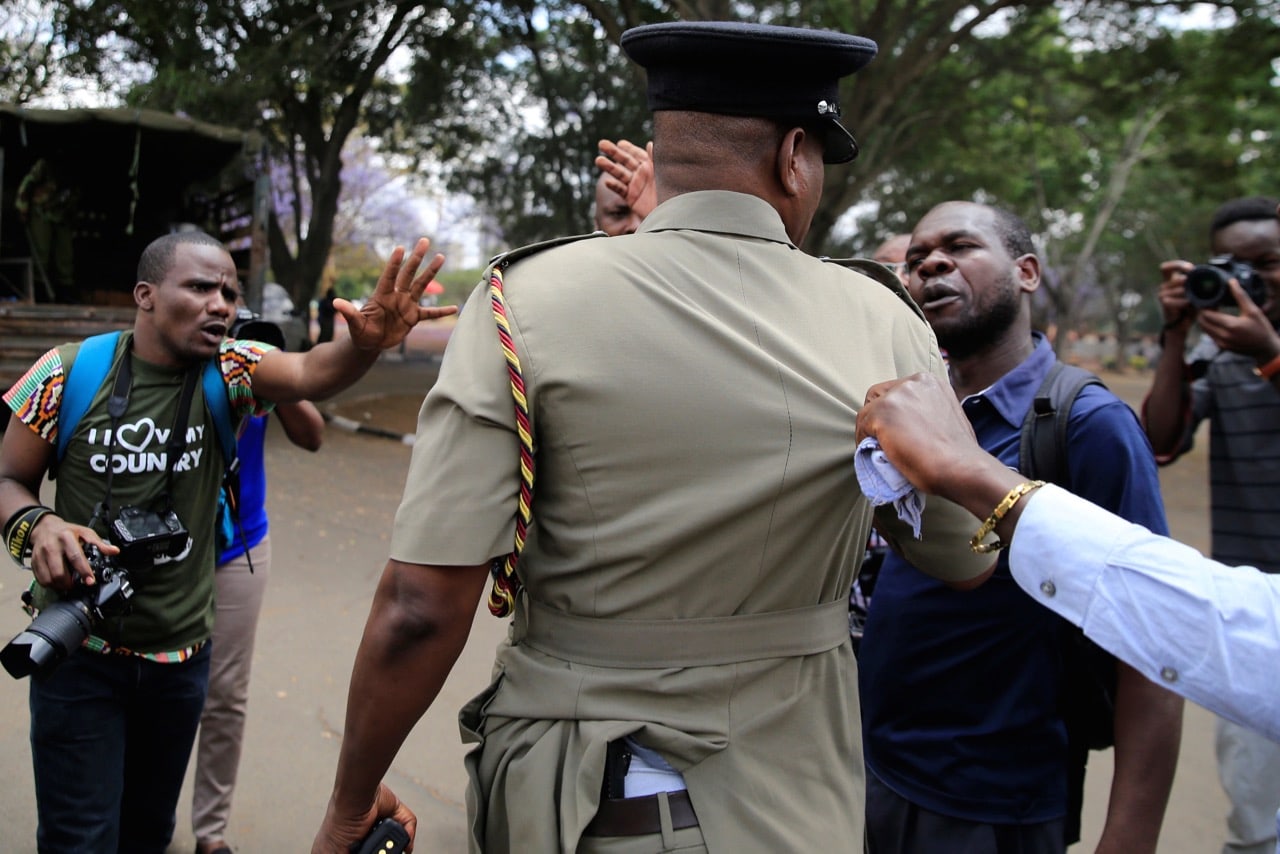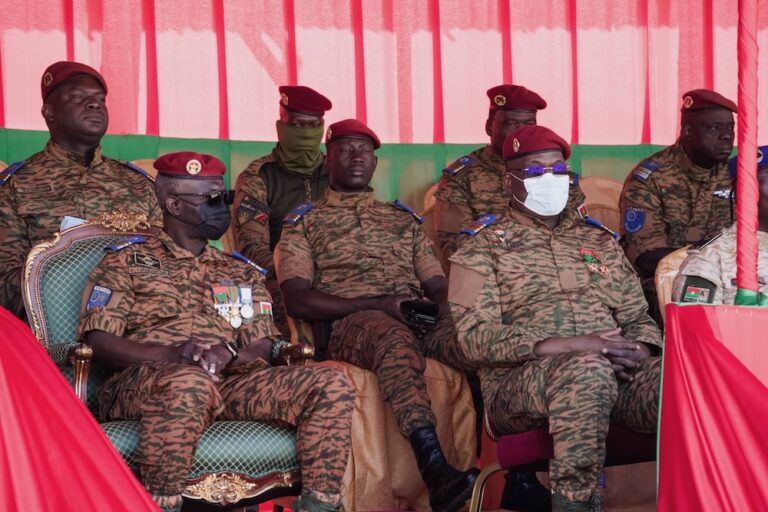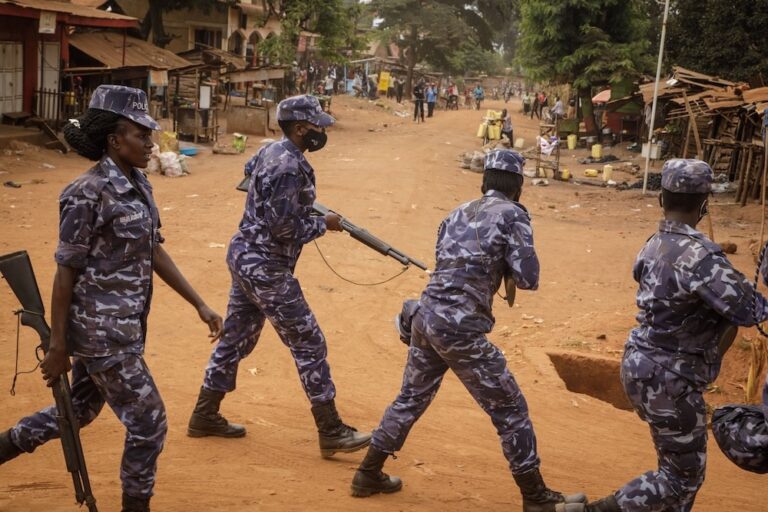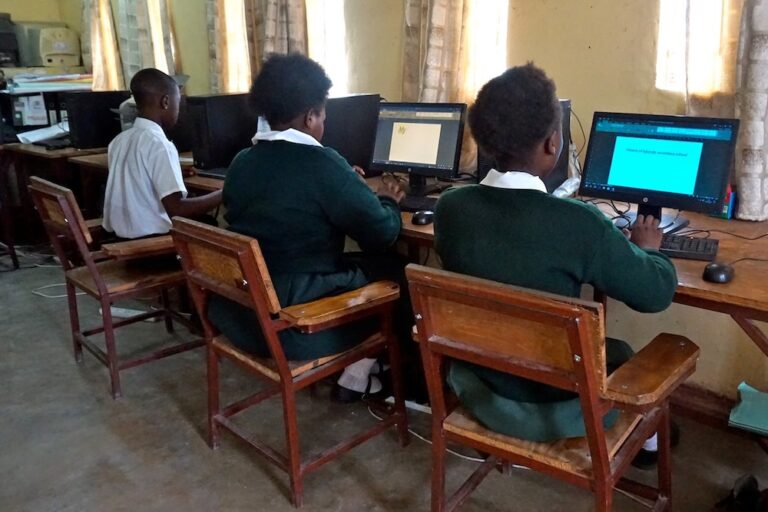Silenced politicians in Kenya and Rwanda, Tanzanian taboos and Nigerian "threats to the state". This and much more from South Sudan, Togo and Côte d’Ivoire in our June round-up of free expression news.
A different kind of elections monitoring
Tensions are rising in Kenya and Rwanda as the East African nations gear up for presidential elections in August.
With the horror of the post-elections violence in 2007 still in the public consciousness – and the marked increase in free expression violations since Uhuru Kenyatta was elected in 2013 – the world will be watching as Kenyans head to the polls. On 8 August 2017, voters will choose between Kenyatta and opposition leader Raila Odinga, in what experts are saying will be a close race. But the polls will not be the only thing that the international community will be monitoring – the media’s ability to report will also be under intense scrutiny.
On 30 May 2017, Human Rights Watch and ARTICLE 19 Eastern Africa released Not Worth the Risk – a report documenting abuses by government officials and other actors against journalists in the lead-up to the 2017 general election. Based on four months of research and interviews, the report reveals that “Kenyan government officials are increasingly scrutinizing media reporting and the impact it has on public perceptions of governance, health and education services, security, land rights, state management of public funds and the ongoing lack of accountability for the 2007 post-elections violence.”
On 5 June 2017, less than a week after the report was published, Royal Media group journalist Emmanuel Namisi was attacked by bodyguards at a nightclub in Bungoma county; he was left with a dislocated leg. Namisi told the Committee to Protect Journalists (CPJ) that the bodyguards worked for Bungoma Governor Kenneth Lusaka, and that they were angry about an article he had written implicating them in a woman’s death at a political rally. According to Namisi, the bodyguards accused him of “spoiling” their image, and told him he “should be very careful.”
In neighbouring Rwanda, it’s not just journalists who have to watch what they say, but those vying for power as well.
ARTICLE 19 reports that Rwanda’s National Electoral Commission (NEC) will require all presidential candidates to get their campaign messages approved before they are published online.
The regulation – announced in May and effective on 14 July – is intended to ensure that messages posted on social media are not “poisoning the minds” of Rwandans, according to the Executive Secretary of the NEC, Charles Munyaneza.
But the Rwanda Utilities Regulatory Authority (RURA) has publicly condemned the regulation. In a statement published on 31 May, RURA said that the NEC does not have the “mandate to regulate or interrupt the use of social media by citizens.”
ARTICLE 19 and AFEX have also expressed their discontent with the regulation.
“Under this new ruling, it is likely that only posts that are not critical of the ruling political establishment will be permitted. This prevents essential political debate ahead of the elections, and places serious doubt on the ability of the NEC to oversee free and fair elections,” said Henry Maina, ARTICLE 19 Eastern Africa Regional Director.
“All issues related to the media (including the internet) and general expression should be done in consultation with RURA and other relevant stakeholders to ensure that the elections are conducted peacefully and successfully without compromising the rights of Rwandese to express themselves,” AFEX stated on 2 June.
Dissent dispelled
West Africa was not without its share of free expression violations last month.
On 3 June, Charles Otu, the Ebonyi State correspondent for Nigeria‘s Guardian newspaper was attacked with clubs by armed men suspected to be political thugs.
“They accused me of being a threat to the state government,” Otu told Media Rights Agenda.
The journalist then said the men drove him to the Ebonyi Cabinet Office, where they threatened to silence him permanently if he did not sign a document pledging to never to write a story against the state government again.
In nearby Togo, students suffered similar treatment for simply exercising their right to free assembly.
On 14 June, student leader Satchivi Foly was attacked and arrested by gendarmes while his group – la Ligue Togolaise des Droits des Etudiants (LTDE) – held a general assembly at the University of Lomé. According to the Media Foundation for West Africa (MFWA), gendarmes beat LTDE members with batons, sprayed them with tear gas, and detained several other students as well. The events took place only one day after the LTDE had met with Nicoué Broohm, the Togolese minister for higher education, to discuss issues affecting their studies.
Mining for trouble
In Southern Africa, free expression violations took a more legislative approach.
On 15 June, Tanzania‘s Information, Sports and Culture minister Harrison Mwakyembe imposed a two-year ban on privately-owned newspaper Mawio. According to CPJ, the publication ban came after Mawio mentioned two retired presidents, Benjamin Mkapa and Jakaya Kikwete, in reports about a government investigation into alleged misconduct in the mining sector. The Citizen reports that the the decision faced backlash from media stakeholders in Tanzania, including the Tanzania Editors Forum and the Media Council of Tanzania.
Frustration, Anger Over Decision to Ban Mawio: https://t.co/RHXAEKexJC #Tanzania pic.twitter.com/e04TKckgBq
— allAfrica.com (@allafrica) June 19, 2017
In nearby Angola, similarly drastic measures were taken against investigative journalists Rafael Marques de Morais and Mariano Bras Lourenco. CPJ reports that on 20 June, the journalists learned that they had been charged with “outrage to a body of sovereignty and injury against public authority,” over a story published in 2016. The article alleged that the attorney general illegally acquired land. If sentenced, Marques de Morais and Mariano Bras Lourenco could face up to six years in prison.
This is not the first time the Angolan government has come after Marques de Morais for his work. In 2016, he was given a six month suspended prison sentence for “defaming” Angolan generals in his book Blood Diamonds: Torture and Corruption in Angola.
According to the Media Institute of Southern Africa, Marques de Morais’ book documents approximately 100 cases of killing and torture against civilians and small-scale miners, allegedly carried out by Angolan army members and security guards.
Release and repeal
There were also some very positive gains in the world of free expression in Africa last month.
South Sudanese journalist George Livio Bahara celebrated his first month of freedom after spending nearly three years in prison. An employee of UN Radio Miraya in Wau, Bahara was detained without charge in August 2014 and released on 25 May 2017. The Association for Media Development in South Sudan – which had advocated for Bahara’s release – welcomed the news, while also taking the opportunity to draw attention to other free expression issues in South Sudan. “AMDISS… is still concerned with the continued closure of the following media houses: the Nation Mirror Newspaper, The Citizen Newspaper, Al-Rai Newspaper, Al-Taabeer Newspaper and Free Voice. We reiterate the call for the reopening of the above media houses and appeal the government to allow the media to do its work freely,” the organisation stated.
The Media Foundation for West Africa and its national partner organisations also had cause for celebration last month after successfully petitioning Côte d’Ivoire President Alassane Ouattara to remove certain sections of an audiovisual law. The MFWA was primarily concerned with Article 90 of the bill, which proposed fines of up to 3,000,000 francs CFA (US$4,988) and up to five years in prison for certain press offenses.
On 29 May, the bill was withdrawn. “Having heard the concerns of the people, the government has decided to give itself some more time before passing the press and audiovisual bill. This will enable the government some space to listen to, analyse the criticisms and subject the bill to the necessary scrutiny for a text of this kind,” said the Ivorian Minister of Communication and Digital Economy, Bruno Nabagné Kone.
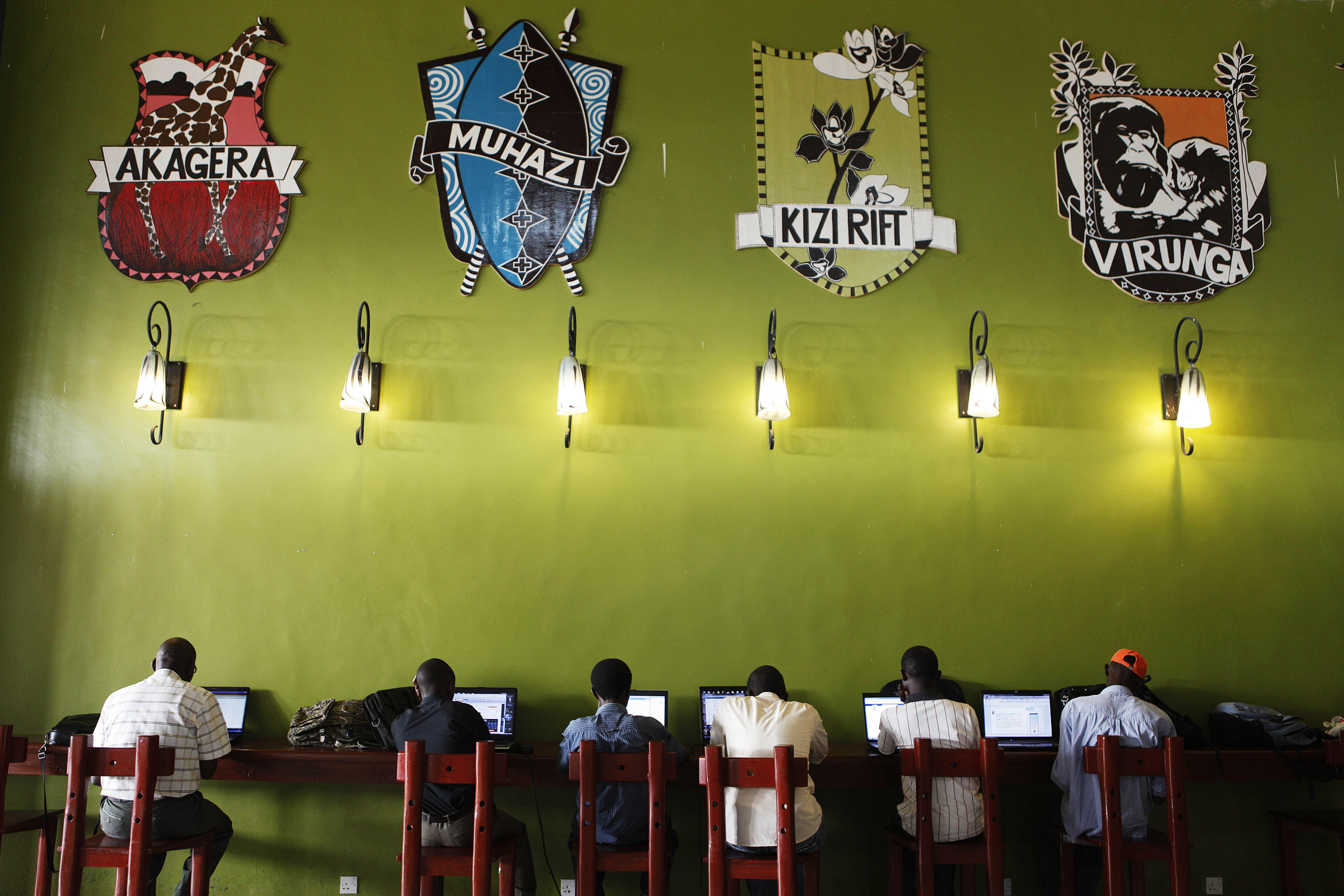
People surf the internet at a free Wi-Fi spot at Kigali international airport as results begin to trickle in from general elections, in the capital Kigali, 9 August 2010REUTERS/Finbarr O’Reilly
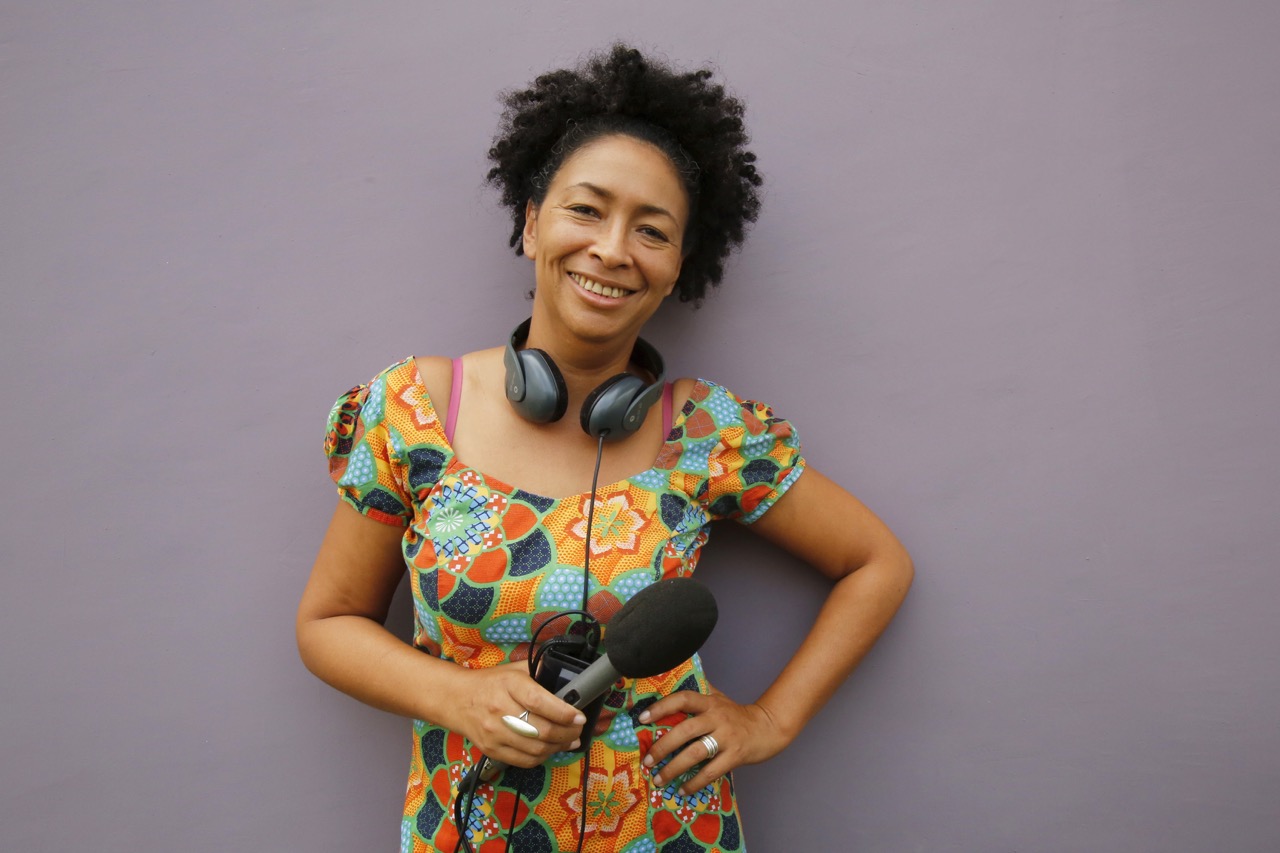
Valerie Bony, 48, a BBC journalist, poses for a photograph in Abidjan, Ivory Coast, 5 March 2016REUTERS/Thierry Gouegnon
